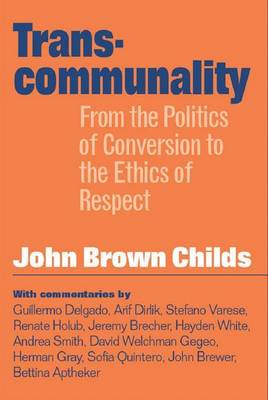In this original and collaborative creation, John Brown-Childs offers unique insights into some of the central problems facing communities, social movements, and people who desire social change: how does one build a movement that can account for race, class and gender, and yet still operate across all of these lines? How can communities sustain themselves in truly social ways? And perhaps most important, how can we take the importance of community into account without forgoing the important distinctions that we all ascribe to ourselves as individuals?Borrowing from the Haudenosaunee, or Iroquois federation, Brown-Childs offers a way of thinking about communities as coalitions, ones that account for differences in the very act of coming together. Using the Iroquois as an example of transcommunality in action, he also offers specific outcomes that many people desire racial justice and peace are two examples as points of focus around which many disparate groups may organize, without ever subsuming questions of identity as an expense of organizing.
In addition to Brown-Childs' own exegesis, twelve scholars and thinkers from all walks of life offer their own responses to his thinking, enriching the book as an illustration and example of transcommunality.In an age of fractured identities and a world that is moving toward a global community, "Transcommunality" offers a persuasive way of imagining the world where community and individual identity may not only coexist, but also depend upon the other to the benefit of both. John Brown Childs is Professor of Sociology at the University of California, Santa Cruz, and is author of two previous books, including "Leadership, Conflict, and Cooperation in Afro-American Social Thought" (Temple).
- ISBN10 1299850626
- ISBN13 9781299850620
- Publish Date 1 January 2010 (first published 22 January 2003)
- Publish Status Active
- Out of Print 9 June 2015
- Publish Country US
- Imprint Temple University Press
- Format eBook
- Pages 258
- Language English
